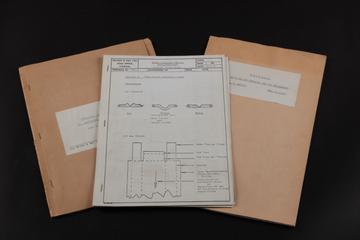
Bryant and May
Bryant and May was founded as a partnership between Francis May and William Bryant in 1843 to trade general merchandise. From 1850 they began to import matches from the Swedish manufacturers Carl and Johan Lundstrom. This proved to be popular as within 3 years it was selling 8 million boxes, which was around half the output of their Swedish supplier.
In 1861 a company was formed under the name Bryant and May and it began manufacturing safety matches at a new site in Bow. Initially, the founders had not wanted to produce the more dangerous lucifer matches then in widespread use but at the time the public was unwilling to higher prices for the safer type and as a result, the company was forced to produce both versions.
The 12th June 1884 would see the company being publicly registered and it would later acquire Bell and Black Match Co. Despite this growth, the company would suffer from several issues the most important of which was the 1888 match girl strike.
The company continued to acquire other match manufacturers so that by 1902 it was the largest in the country. In 1905 it acquired the British Diamond Match Company but at the same time, American Diamond Match Company purchased a 54.5% share in Bryant and May, although was mostly bought back by 1914. Also in 1914, the company would establish a staff pension scheme and in 1919 it would also introduce a profit-sharing scheme.
1922 would see the establishment of Bryant and May’s forestry division which aimed to produce Aspen and later Poplar. This would greatly expand following the Second World War due to a perceived demand for Poplar in the match and basket industries. The division encouraged the planting of poplar, which included selling planting stock, providing advice to growers and assuring the purchased of acceptable quality wood by Bryant and May. Despite this uptake among private growers was slow and it would soon begin its own planting program. During the 1960s and 70s, it would begin the first major UK development of silvoarble agroforestry on its plantations in East Anglia and Herefordshire. In 1978 Wilkinson Match, the then owners of Bryant and May, reversed their intention to rely on British grown poplar and the forestry division was wound up, although some research on silvorable agroforestry would continue through the Open University.
In 1927 Bryant and May combined with the Swedish Match Company’s interest in the British Empire to form the British Match Corporation. It would continue to operate as a brand of the new company until 1973 when the group merged with Wilkinson Sword to form Wilkinson Match. It would continue to be part of this until it was acquired by Allegheny International in 1980, which controlled the group including Bryant and May until its bankruptcy in 1987. At this point, it became a subsidiary of Swedish Match. This continued until 2009 when Bryant and May became part of Republic Technologies International.